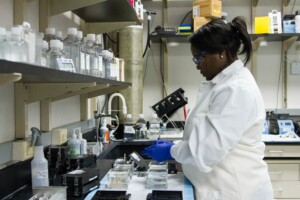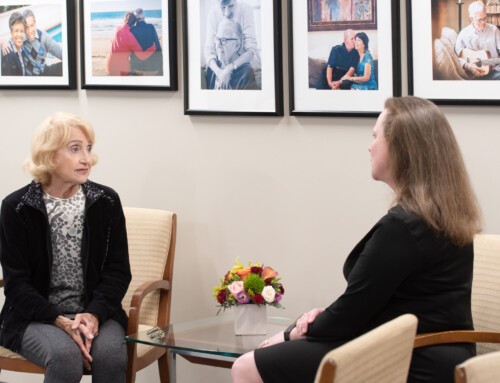 It can seem like there’s a new Alzheimer’s “breakthrough” almost every day. We sift through the headlines and pull together the relevant, reputable research updates. Here are five recent research updates, as of March 2022:
It can seem like there’s a new Alzheimer’s “breakthrough” almost every day. We sift through the headlines and pull together the relevant, reputable research updates. Here are five recent research updates, as of March 2022:
1. Predicting Alzheimer’s risk: Why cognitive testing alone may not work
According to a new study from the University of Cambridge, cognitive testing alone cannot predict the likelihood of an individual developing Alzheimer’s disease or mild cognitive impairment. Researchers determined that lower education, lower income, and social isolation can contribute to lower cognitive testing performance – this is known as “cognitive frailty.” While cognitively frail study participants did test lower on cognitive testing, they still performed complex mental tasks at or around the same level as the healthy control group. Results found that the brain structure and neural function of the cognitively frail are just like healthy older adults, and there was no volume loss in the brain areas associated with dementia. The study is significant as it points to the importance of looking at increasingly available biomarkers that can help identify individuals at risk for developing or in the early stages of Alzheimer’s, not just cognitive tests. Read more >>
2. Does the gut play a role in dementia? Here is the evidence
Several studies have already shown that gut health is important for overall well being, but now there is a link between gut health and brain health. A small cross-sectional study in Japan looked at data from the microbiome, and found that people with dementia have a different gut microbiota than those without dementia symptoms. “In the past, we never [thought] of the association between gut and dementia. However, new technology regarding microbiome analysis has revealed it. This new risk factor other than amyloid-beta, a famous factor, may play an important role in the next decade,” explains lead researcher Dr. Naoki Saji. Read more >>
3. The neurological impact of COVID-19: What we know so far
Medical experts around the world are worried about the long-term prognosis for people recovering from COVID-19. According to a recent article published in the respected academic journal Science, neurologists are concerned that the neurological inflammation and damage caused by acute cases of COVID-19 could trigger or accelerate the development of diseases like Alzheimer’s or Parkinson’s. Read more >>
4. Dementia: Seeing the same doctor each time may improve outcomes
People living with dementia can receive better quality of care by seeing the same medical professionals than those who see different doctors, according to a new report. In the study published in the British Journal of General Practice, people living with dementia who had follow-up care with the same doctor over time were found to have less adverse health outcomes than those who didn’t, such as fewer emergency hospitalizations, fewer negative side effects of medication, and reduced cases of delirium. Read more >>
5. Why Alzheimer’s disease may require a broader treatment plan
New data shows that the most effective treatment for those living with Alzheimer’s disease could involve a combination of drugs, similar to the approach used when treating HIV. There is a “cocktail of drugs used to address different elements of the disease. Together, these drugs work toward the larger goal: treating the symptoms of Alzheimer’s in a particular patient,” according to a recent study from the Journal of Molecular Neuroscience. Read more >>
To learn about Alzheimer’s research in San Diego County, click here or contact Alzheimer’s San Diego at




